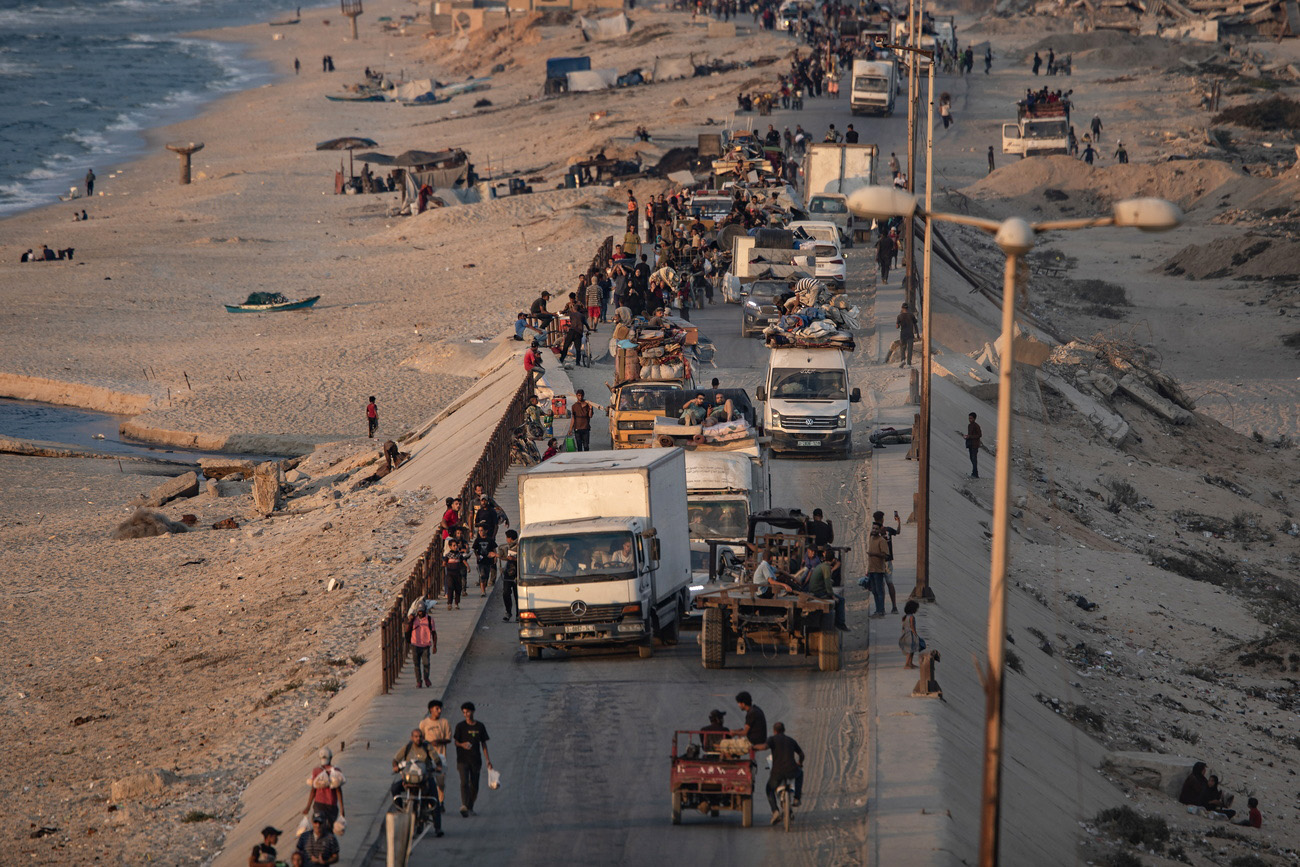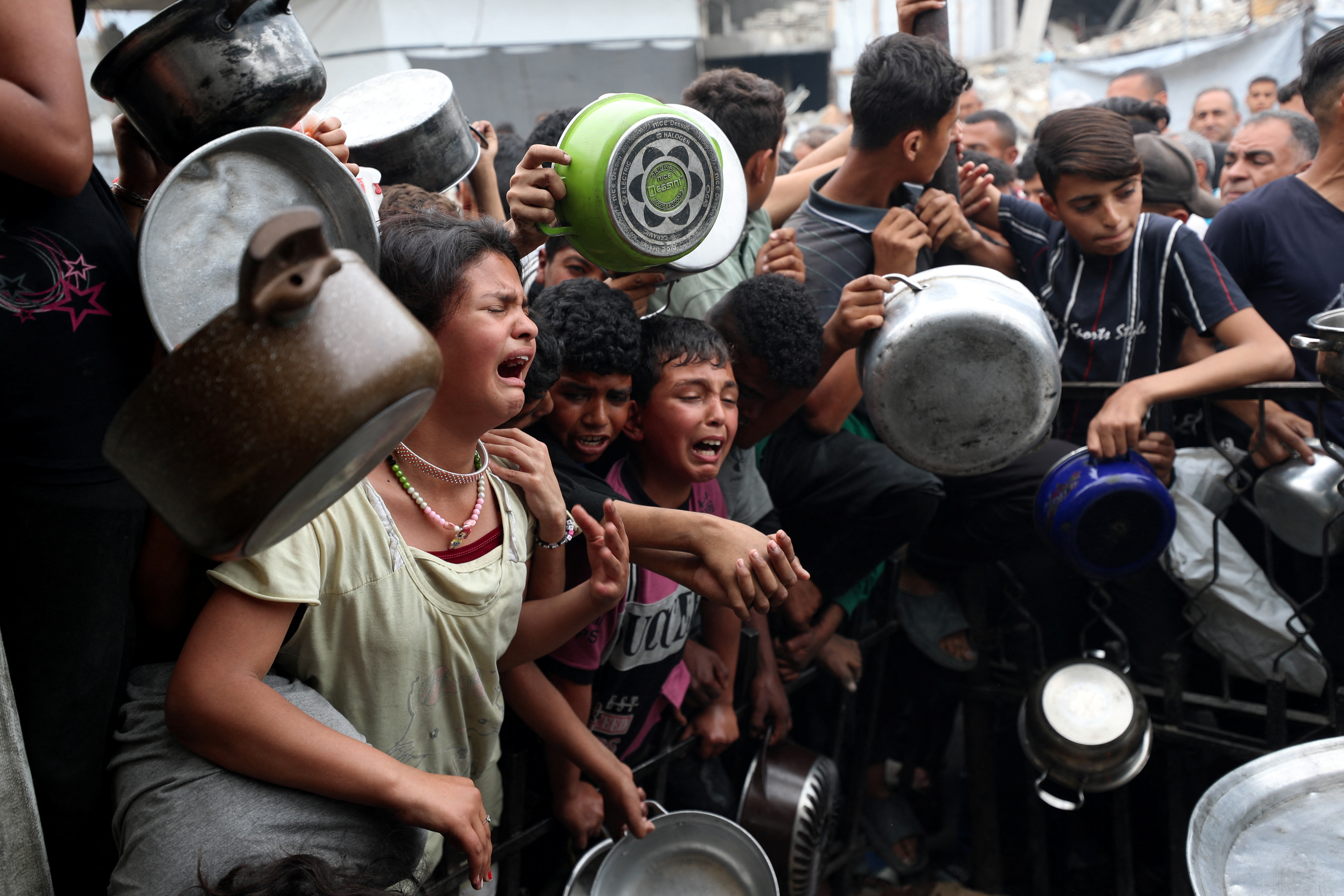
How the UN is navigating diplomacy, international law and humanitarian aid in Gaza

The UN has been largely marginalised in the Middle East since the start of the Gaza war two years ago. But that is not stopping it from pushing for a peaceful solution.
On September 22, all eyes were on the UN at the start of the UN General Assembly in New York. That day, eleven countries recognised Palestine as a state, including the United Kingdom, Canada, Australia, Portugal and France, bringing the total countries recognising the state to 157 out of the 193 UN member countries.
At the same time, Israel was pursuing a large-scale ground offensive on Gaza City, leading to further casualties and displacement of the population.
In response to the action at the UN, Israeli Prime Minister Benjamin Netanyahu immediately accused leaders of countries recognising Palestine of “giving terrorism a huge reward.” He added that that there would “be no Palestinian state.” Two of his cabinet ministers from far-right political parties called for the permanent annexation of the occupied West Bank.
The most recent recognitions of Palestine come on the back of a near two-year Israeli war in Gaza that has killed tens of thousands of Palestinians and thrown some two million people into poverty. The UN has officially declared a famine in the territory and a UN Independent International Commission of Inquiry concluded earlier in September that Isreal has committed genocide.
Isreal denies both claims.
The war was triggered by a Hamas attack on southern Israel on October 7, 2023, in which members of the militant group killed over 1,100 people and took 251 hostages.
The UN summit recently hosted by France and Saudi Arabia attempted to revive the “two-state solution”: an Israeli and a Palestinian state coexisting within secure and recognised borders.
But without backing by the United States and Israel, can the declarations go beyond the symbolic? What role, if any, can the UN now have in a sustainable resolution of the conflict, especially now that US president Donald Trump has put his own peace plan on the table without any UN involvement?
Political framework
“As long as the US systematically supports Israel – including through vetoes in the Security Council – nothing will happen in the Security Council,” Marc Finaud, a researcher at the Geneva Centre for Security Policy (GCSP) and a former French diplomat, tells Swissinfo.
Only the UN Security Council can establish a political framework for the implementation of a two-state solution. The organ remains paralysed by the veto power of its five permanent members.
But by pushing for a two-state solution, the UN continues to play a political role in the Middle East, Finaud adds.
The UN summit was based on the “New York Declaration”, which was adopted that same month by the UN General Assembly by a large majority of 142 states, including Switzerland. The declaration called for “a just and lasting peace based on international law and the two-state solution”. It called for the release all hostages still held in Gaza by Hamas, the disarmament of the militant group and its exclusion from governance in Gaza, as well as collective security guarantees.
The world summit in New York took place “against a particularly troubling regional backdrop,” the UN said, including “Israeli air strikes on Hamas leaders in Qatar on 9 September; and the acceleration of Israeli settlement activity in the West Bank (in violation of international law)”.
Read more on the UN in the Middle East:

More
Is the UN still relevant in the Middle East?
Replacing journalists
The UN is active in monitoring both parties’ compliance with international law. Various aid organisations, including the World Health Organization (WHO), the United Nations Children’s Fund (UNICEF), the United Nations Relief and Works Agency for Palestine Refugees (UNRWA) and the United Nations Office for the Coordination of Humanitarian Affairs (OCHA), are on the ground in the Gaza Strip.
Their staff provide reports and daily updates about what is happening.
Israel does not grant international media independent access to the Gaza Strip and some 200 Palestinian journalists have been killed to date, the highest number in a conflict on record.
In this context, organisations such as OCHA are also involved in reporting, providing daily updates on what is happening in the Gaza Strip and the West Bank. These are valuable to journalists worldwide.
“Much of the information gathered is also used to advocate for humanitarian access and respect for international law,’ says OCHA spokesman Jens Laerke.

“OCHA is also in direct contact with a large number of member states, and the issue of international law is almost always raised,” Laerke says. “We have also repeatedly emphasised that Hamas and other armed groups must release all hostages immediately and unconditionally.”
According to Finaud, UN aid agencies also have a political role to play, as they regularly inform not only the Security Council but also the media about the situation in the Gaza Strip. “This helps to raise awareness. It is clear that countries that were hesitant to take a stand against Israel, such as Germany, have evolved.”
In early September, after Israel said its army would take control of Gaza City to liberate more hostages, Germany stopped the export of military equipment to Israel.
Militarised supply system under criticism
UN aid organisations are still functioning in Gaza, continuing to distribute aid, infrastructure support and education despite restricted access imposed by Israel.
At the end of May, Israel with the support of the United States created the Gaza Humanitarian Foundation (GHF) to replace the UN-led aid system.
“The GHF is in line with the traditional Israeli and American approach of avoiding anything that is multilateral, controlled and meets humanitarian criteria,” says Finaud.
Read more on the Gaza Humanitarian Foundation:

More
A Geneva-based NGO is Israel’s answer to aid in Gaza
The GHF has come under international criticism for militarising aid and accentuating starvation in the territory. Between May 27 and September 9, at least 2,256 people were killed while accessing GHF food distribution sites according to the Office of the UN High Commissioner for Human Rights (OHCHR).
At the beginning of August, UN experts called for the GHF to be disbanded.
Famine and a US-backed plan
Israel has denied any allegations of deliberate fire at civilians.
On August 22, the UN-backed Integrated Food Security Phase Classification (IPC), a leading initiative for food security, declared a famine in northern Gaza.
“When we talk about a political solution, about negotiations, the UN humanitarian organisations can show that without them, not much can be achieved,” says Finaud.
Listen to our podcast episode on the UN at 80:

More
The UN is 80 – but is it still relevant?
On the sidelines of the UN General Assembly at the end of September, Trump presented a plan to end the war in Gaza at a meeting with representatives of Arab and Muslim states such as Turkey and Indonesia.
The plan also included the release of all Israeli hostages and measures to address the worsening humanitarian crisis in the Gaza Strip. It also stipulates humanitarian aid flow at no less than 600 trucks daily (the daily number of trucks before the war), alongside infrastructure repair and rubble removal.
The UN while absent from all negotiations will take part in the implementation.
Aid distribution will be handled exclusively by “neutral international agencies such as the UN and Red Crescent”.
At time of publication Hamas had yet to accept the plan. It was endorsed by Israel on September 29.
Edited by Virginie Mangin/vdv

More
International Geneva

In compliance with the JTI standards
More: SWI swissinfo.ch certified by the Journalism Trust Initiative



























You can find an overview of ongoing debates with our journalists here . Please join us!
If you want to start a conversation about a topic raised in this article or want to report factual errors, email us at english@swissinfo.ch.